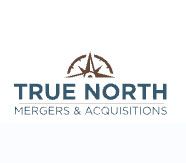What Do Reps, Warranties, and Escrow Mean, and What Is the Purpose When I Am Selling My Company?

True North Mergers & Acquisitions
November 4, 2024

As a business owner ready to exit the ownership of your company, you want to ensure that the deal is closed when the funds are in your bank account.
Imagine you're sitting on a calm lake fishing or at your granddaughter's dance recital, and your phone rings–it's your lawyer informing you the new owners of your manufacturing company found undisclosed machine operating issues. Despite the deal closing three months ago, they're demanding over $1.5 million to fix it.
This scenario demonstrates the importance of representations and warranties in mergers and acquisitions transactions. It also shows why your advisory team needs to be tough and thorough negotiators during the purchase agreement drafting phase of the process, as it can lead to significant financial repercussions long after a sale. The transaction deal structure (Stock Sale versus Asset Sale) will also have buyer/seller liability implications.
This blog details and explains how, as a business owner, reps, warranties, and escrows may impact your business's deal dynamics risk allocation and even claw back some of the money you receive after closing.
Risks of Representations and Warranties and Claims Mitigation
Representations and warranties" ("Reps and Warranties") are essential statements in the definitive equity or asset purchase agreement that the seller makes regarding their business. It's critical to recognize that reps and warranties are fundamental to the transaction, as they are legally binding assurances about the condition of your business and play a key role in allocating risk between you and the buyer.
To help you minimize potential liabilities related to these statements, consider the following strategies:
- Understanding the Purpose: The primary goal of representations and warranties is to protect the buyer through disclosure from unforeseen risks that occur outside the ordinary course of business operations. As a seller, it is essential to recognize that no business is perfect, and buyers use these provisions to gain assurance about the target company's condition.
- Thorough Due Diligence: Exercise extreme diligence and scrutinize every aspect of the representations and warranties in drafting the Definitive Purchase Agreement ("DPA") to protect yourself. Never treat them as boilerplate legal language. Reps and Warranties are specific to every deal. The review process can include examining all financial statements, tax returns, and accounting practices, doing a legal compliance check, checking customer claims, supplier contracts, and other issues in business.
- Limitations and Considerations: Understanding these limitations will help you navigate risks effectively while protecting your interests in a mergers and acquisitions transaction.
- Time Limits: Most representations and warranties have a set expiration period, known as the survival period. Typically, this period lasts about 15 months for non-fundamental claims, with many lasting 12 months. These time limits can help limit your exposure as a seller.
- Materiality: Not all breaches will qualify for indemnification. Minor issues may not meet the threshold for a claim, so it is important to understand what constitutes a significant breach.
- Caps on Liability: You can negotiate limits on your total exposure for breaches of representations and warranties. Generally, these caps range from 10% to 20% of the purchase price, but they can be higher for specific claims, such as environmental issues. On average, the cap for non-fundamental breaches is around 6.5% of the purchase price, increasing slightly to about 7% for transactions under $100 million. This suggests a more cautious approach in smaller deals while still being favorable for sellers.
- Indemnification Baskets: This is an important concept where a specified claim amount must be exceeded before you become liable for claims—similar to an insurance deductible. The indemnification cap refers to the overall protection you provide against breaches of representations and warranties, but it often has exceptions; for instance, it may not apply in fraud cases.
- Representations and Warranties Insurance (RWI): Obtaining RWI has become an increasingly popular tool for managing risks associated with Reps and Warranties. RWI was typically for transactions over $50 million. Still, the value has been recognized by shrewd investment bankers negotiating the best deal for their clients, and insurance providers have moved down the market, making RWI more affordable on smaller transaction values. Your investment banker or mergers and acquisition advisor can negotiate with the buyer who should foot the bill for RWI.
Why Do You Need to Establish an Escrow Account for Your Mergers & Acquisitions Transaction?
Escrow arrangements are essential for managing risk in many mergers and acquisitions transactions, especially in lower-middle-market deals. The escrow funds are held in an interest-bearing trust account to ensure that sellers meet their indemnification responsibilities outlined by the representations and warranties. The typical escrow amount varies between 2% to 10% or even higher. The seller's mergers and acquisitions intermediary (investment banker, advisor, or broker) should negotiate the amount.
They should also negotiate the terms (how long is it held – six, twelve, eighteen, or twenty-four months) in the letter of intent ("LOI") phase before it is signed. The longer the escrow period, the seller's mergers and acquisitions team should negotiate for periodic releases of escrow – i.e., half after the first six months, an additional 25% at the first anniversary, and the balance at the second anniversary after the transaction closing date.
If a seller breaches any of these commitments, the buyer can draw from the escrowed funds to cover their losses, which could lower the final amount paid to the seller.
About 52% of all deals involve an escrow or holdback, where part of the purchase price is set aside in a third-party account or retained by the buyer as security for any potential indemnification claims. This figure jumps to around 71% for deals under $100 million, indicating that buyers are less willing to take risks or that sellers may have less creditworthiness in these smaller transactions. This setup protects buyers and encourages sellers to be accurate and transparent in their disclosures.
Conclusion
The conclusion of a deal is not always the end of the story. Due to representations and warranties, obligations can persist even after completing the transaction. Representations and warranties are among the few components of a sales contract that remain in effect post-closing, potentially causing unforeseen issues. By understanding these concepts, you can sidestep expensive mistakes.
If you want to learn more about how reps, warranties, and escrow may affect your business, we would be happy to discuss your specific situation and explore your options together. Contact Michael Hubsmith, President of TNMA, for more information.
Subscribe to our Newsletter
Sign up for the latest industry insights from True North Mergers & Acquisitions.




